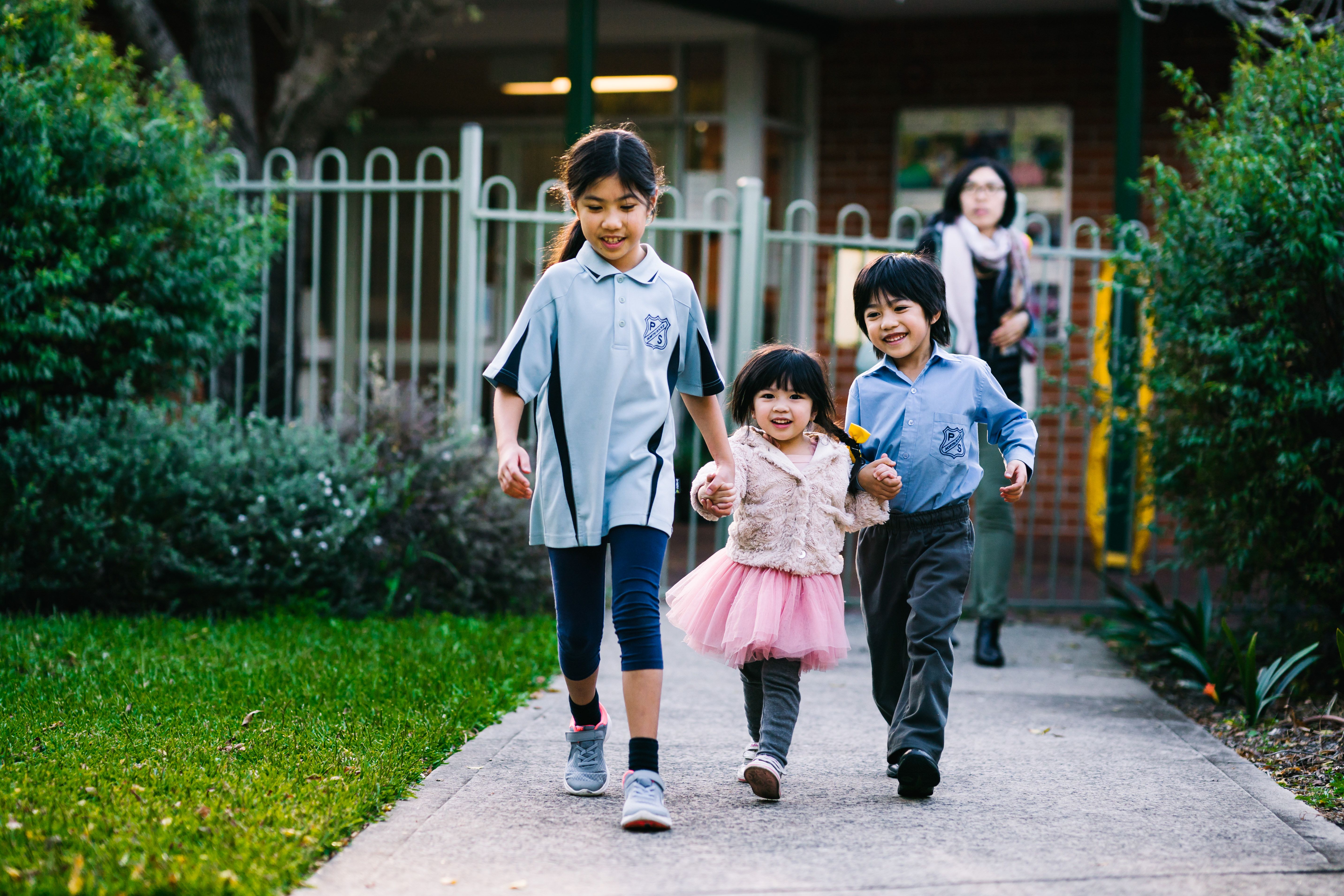Starting school is an exciting milestone for your child and family. All of you will be experiencing changes as your child settles into a new learning environment, develops new friendships, and spends time with new teachers.
Preparing your child for their transition to school prepares them for future learning and development.
Is your child ready for school?
Being school ready is not dependent on whether your child can read and write. Being school ready is about the whole child. When deciding on the right time for your child to start school, it’s important to consider a range of factors, including your child’s age, emotional maturity, language skills, social skills, physical wellbeing and their ability to undertake simple self-help tasks independently.
If your child is attending an early childhood education and care service, speak to the educators about your child’s cognitive, physical, social and emotional development and seek their views on how to best support their transition to school. Ask the educators about the transition to school strategy they have at the service.
You can also speak with the principal of the school your child may attend. Most schools support your child as they transition to school, through an orientation program, made up of visits to the school and spending time with the kindy teachers and other children.
How can you help prepare your child for beginning school?
- Talk positively and confidently about starting and attending school
- Speak with your child about the change in their daily routine, how will they get to school, what time they have to get up in the morning and what they will have in their lunch box
- Visit the school with your child before they start so they’re familiar with the classrooms, playground equipment, bubblers, toilets, sick bay etc.
- Meet the teachers that may be working with your child and speak about them positively to your child
- Tell your child about support systems that the school offers e.g. if there is a buddy system where an older child supports your child in their first year of school
- Read books together about starting school
- Be involved in your child’s school community e.g. participating in playgroups, orientation days
or other social gatherings like school fetes and welcome barbecues - Attend school events such as the book week parade, an assembly or school concert
- Develop good relationships with other parents, especially other parents of your child’s friends
- Establish good attendance patterns for your child
- Develop family routines at home to support your child’s learning at school e.g. read with your child each night, help them with any homework etc.
How can your early childhood education and care service support your child’s transition to school?
Both you and your child’s educator at their service play a significant role in supporting a successful transition to school. It’s important that your child’s individual needs are considered carefully to ensure that the transition process is positive and effective.
There are a range of transition to school experiences that many services can, and do, implement to support children transitioning to school. Some examples include:
- Talking to children about school, and encouraging them to ask questions or voice their concerns
- Arranging visits to local primary schools to meet kindy teachers and tour the setting
- Inviting school students to visit the service to talk about what school is like
- Reading stories about starting school
- Including school props, such as uniforms, bags, lunch boxes, and chalk boards in dramatic play areas
- Support children to develop their self-help and social skills through every day routine activities such as meal times when children will practice using lunch boxes and drink bottles
- Providing literacy items such as reading and writing materials in everyday play activities
How can you help your child settle into school?
The following suggestions may help you to support your child to settle comfortably and confidently into school:
- Say goodbye confidently – saying a quick, confident goodbye may help them to feel secure and reassured that you trust that they will be okay at school.
- Label your child’s belongings - labelling everything, including clothing, can help reduce anxiety for children, school staff and yourself. At school, children are responsible for their belongings and labels can help them with this.
- Communicate with your child – take time to tell your child what might be happening at school that day, and in the afternoon, ask your child about their day. This is a great way to build confidence, and to find out how they are feeling as they settle in. If you have any concerns talk with your child’s teacher, who will provide further insight to their day.
- Avoid overloading your child – when children begin school, they tire easily. It may be worth considering fewer extracurricular activities such as swimming, music or dance lessons, until they adjust to their new routine.

Will your child need outside school hours care?
Consider in advance how you will manage your family’s routine and work arrangements during the school term. If you will need outside school hours care, (also known as OSHC or OOSH), is there a service at your child’s school? Will you need it during the term, on pupil free days and/or during school holidays?
It’s good to discuss these new arrangements and routines with your child in advance to prepare and support their transition to school and new child care service. Your child’s school can provide more information on local services that may suit your child and family.